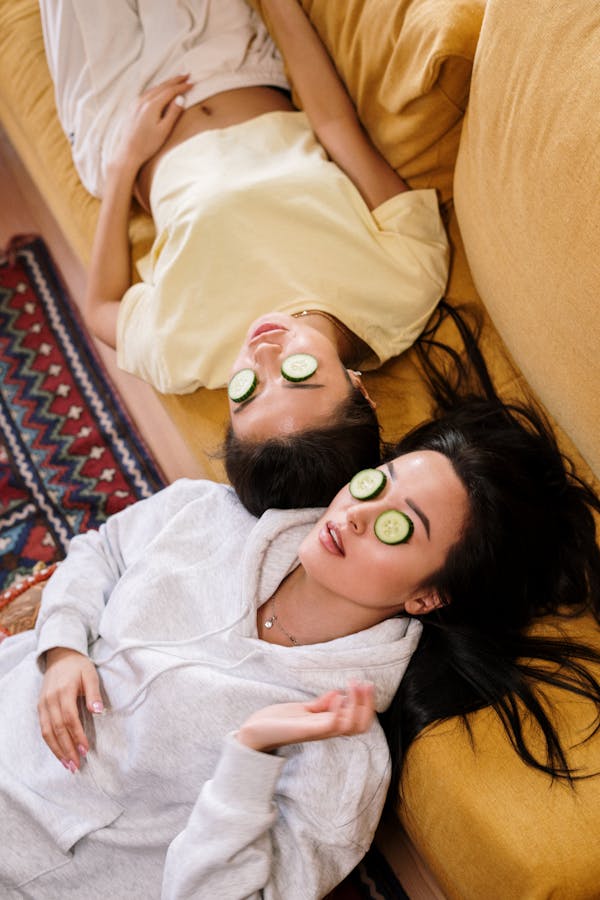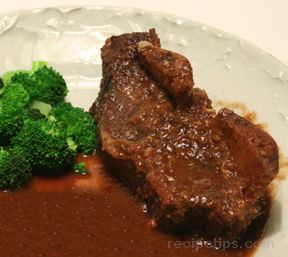An Ayurvedic Guide To Winter Skin Care
Is the chill in the air causing extreme dryness in your skin? Dry, itchy, flaky skin are the common winter woes that most of us face every year. Various internal and external factors affect the health of your skin. Every skin is unique and generalizing skincare can be a mistake. Hence, it is important to provide your skin with the care that is specifically customized to meet its needs. Scroll down to know what causes dry skin and best winter skincare tips based on the ancient science of Ayurveda

What Causes Dry Skin In Winter?
When the environment changes, your skin responds. Low sebum production and dry air are the two main wintertime skin-drying culprits [1]. Let's examine our bodies' heat release or dissipation system to better comprehend the physiological reason that causes dry skin in the winter.
1. Low Sebum Production
One of the many jobs your skin does is serve as an organ of excretion [2]. Your body must keep its ideal temperature in order to allow its enzymes to work. Therefore, when it's too hot outdoors, your sebaceous glands generate more sebum, resulting in oily skin, and your subcutaneous blood flow—the blood flow under your skin—increases. Sebum and sweat production both rise as your body attempts to expel extra heat. Wintertime results in the exact reverse. Sebaceous glands, which are located beneath the epidermis, or top layer of skin, moisturize your skin internally. In the cold, your body tries to conserve heat by reducing subcutaneous blood flow. As a result, less sebum is produced.
2. Dry Air
The chilly, dry air that surrounds you in winter is the external component responsible for draining your skin of moisture. Because of the high air humidity in the summer and the slow evaporation of perspiration, you perspire more. However, the dry winter air easily absorbs the moisture from your skin, leaving it dry and flaking.
Best Tips For Winter Skin Care
1. Oil Massages
According to Ayurveda, when your Tridoshas, or Life Energies, are out of balance, your body is more susceptible to a variety of diseases, including dry skin, also known as "Tvag Rukshyata." The Vata and Kapha doshas are prone to aggravation in the winter. While an inflamed Kapha is the cause of the common cold, phlegm, and congestion, dryness is a Vata Dosha issue.
Oil massages using Vata-balancing Ayurvedic oils are recommended in Ayurvedic scriptures as a fantastic way to cure dry skin. To calm the Vata Dosha on your skin and give it a radiant glow in the winter, massage it each day with one of the following Ayurvedic oils.
A. Sesame Oil
All skin disorders can be naturally healed with sesame oil. The fact that this herb works for all skin types is its best quality. It successfully treats infections, skin allergies, inflammations, acne, and dry skin by reestablishing the skin's normal oil balance.
B. Shatavari Oil
The ancient herb shatavari has long been used to treat skin and hair issues associated with Vata. The Ayurvedic version of Botox, shatavari is brimming with anti-aging qualities that shield the skin from wrinkles, creases, and dryness. It prevents collagen from breaking down, keeping your skin supple and firm. Your skin's lost moisture is replaced with hatavari, preventing it from drying out.
C. Coconut Oil
Coconut oil massage has been recommended by most grandmothers whenever we complained of dry skin in winter. And all for a good reason. Research shows that coconut oil is effective in treating rashes, redness, minor infections and dry skin. Regularly massaging yourself with coconut oil can bring relief to cracked heels, chapped elbows and lips and dry, flaky skin on your arms and legs.
D. Bhringraj Oil
Bhringraj oil is frequently used to treat skin issues like rashes and dryness. Your skin feels hydrated and nourished from the inside out, making it feel soft and smooth. Additionally, it slows down skin aging, and its anti-inflammatory effects shield the skin from inflammation and acne.
E. Almond Oil
Almond oil is frequently found in most homes and is highly helpful in balancing skin dryness brought on by the Vata Dosha. Almond oil contains retinoids that aid in decreasing acne on the skin. Because it is a natural humectant, it aids in locking in moisture, keeping your skin hydrated and supple.
2. Using Ayurvedic Herbs
Since ancient times, dry skin has been treated using Ayurvedic botanicals. They can be used as a paste or even drank with your preferred tea. These organic gifts from nature have no negative side effects and provide a long-lasting remedy for your skin issues by addressing their underlying causes.
A. Ashwagandha
A strong Ayurvedic herb called ashwagandha is frequently used to treat a number of skin disorders, including dry skin. Ashwagandha, which is high in antioxidants, enhances skin health and guards against internal and external free radical damage. Experts in Ayurveda claim that Ashwagandha is crucial in increasing the creation of specific proteins and essential elements that control skin aging. It promotes the formation of collagen, which fights aging symptoms, elastin, which boosts skin elasticity, and hyaluronic acid, which keeps skin hydrated. Therefore, using this magical herb internally or topically will maintain your skin youthful, supple, and radiant.
B. Yastimadhu
Licorice, also known as yastimadhu, is a potent herb used in Ayurvedic rasayana to enhance skin health. By lowering inflammation and skin irritations, its anti-inflammatory and antioxidant capabilities rejuvenate dry skin. Yastimadhu aggressively combats free radicals within the body and lessens oxidative skin damage. According to Ayurvedic principles, it is also particularly good in eliminating "Ama," the toxic waste that undigested food leaves behind. Your skin naturally becomes better as Ama is removed, looking radiant and healthy.
C. Kumari
Aloe vera or Kumari is a natural moisturizer that helps treat dry skin right away. Kumari's moisturizing qualities compensate for your skin's loss of moisture and essential oils. Additionally, it works well to treat redness or irritation brought on by dryness.
D. Manjistha
The advantages of manjistha for the skin are widely established. Manjistha has antibacterial and anti-inflammatory properties and can treat various skin issues. This plant cleanses your blood and gets harmful poisons out of your system when taken internally. Your dry skin issues can be effectively resolved by topically applying Manjistha.
3. Ayurvedic Face Packs
Combat the cold with the face packs listed below, which are filled with the benefits of natural ingredients that moisturize and soothe dry skin and leave you glowing all winter long.
A. Milk, Almond And Rose Water
Milk has a plethora of skin benefits, but it works best to combat dryness. Milk is easily absorbed and gives your skin internal moisture. The essential oils in almonds, which are rich in vitamins, minerals, and fatty acids, replenish skin and stop interior drying. Rose water has anti-inflammatory properties and guards against skin irritations brought on by dry conditions. It is an excellent moisturizer for dry skin as well.
How to use: Combine rose water, almond paste, and cream of milk in a bowl. Apply this face mask, then wait 20 to 30 minutes. Rinse off for skin that is clearly moisturized and silky.
B. Avocado And Honey And Clove Oil
The benefits of avocado face packs for treating dry skin are numerous. It contains a lot of biotin, which naturally moisturizes dry skin. Natural emollients like honey keep your skin moisturized by preventing moisture from evaporating from it. The ability of clove oil to exfoliate skin is well documented. By removing the dead skin cells, it enables nutrition to penetrate your skin.
How to Use: Use a blender to combine avocado and honey. Apply this mixture to your hands and face, then stir in some clove oil. Let it sit for 30 minutes. In the winter, use this pack twice a week to keep your skin from drying out.
C. Banana And Aloe Vera
Bananas are a great source of vitamin A, which is believed to restore dry, dull skin. Bananas contain vitamin A, which greatly hydrates and moisturizes your skin. Your skin easily absorbs aloe vera, which keeps it from splitting.
How to use: Grate fresh aloe vera gel from the plant and mix it with a ripe banana. Apply this to your face and keep it on for 30 minutes to give your skin time to absorb the benefits.
D. Papaya And Honey
In a number of face packs, papayas are used to treat skin issues like dryness and sunburn. Potassium-rich foods have the ability to hydrate dry skin and eliminate sun tan. Papaya and honey are combined to further improve this face pack's capacity to keep skin from drying out.
How to Use: In a bowl, mash ripe papaya and stir in honey. Apply this to your face for at least 30 minutes to deeply hydrate dry skin.
4.Soak Your Feet At Night In Warm Water
Foot soaks are a terrific method to give dry, chapped heels a luscious feel. Due to increased friction and a lack of moisture throughout the winter, the skin on your feet is more prone to drying out and cracking. Your skin can be soothed and moisturized by soaking them in warm water mixed with specific essential oils or apple cider vinegar.
A. Rosehip Oil Soak
Rosehip Oil is a fantastic source of fatty acids, vitamins, and antioxidants because it is made from the seed and fruit of the rose plant. The skin is easily penetrated, nourished, and treated for issues like dryness, irritations, and early aging.
B. Chamomile Oil Soak
Moisturizing, calming, and healing properties of chamomile help dry, chapped skin. Dry and sensitive skin receives prompt relief from its anti-inflammatory qualities.
C. Apple Cider Vinegar Soak
One of the many skin and hair advantages of apple cider vinegar is restoring pH balance. It penetrates your feet's skin fast, soothes dry skin, and aids in moisture retention.
D. Sandalwood Oil Soak
You can relax your feet and soothe your senses by soaking them in warm water mixed with sandalwood oil. Sandalwood has a cooling impact on the skin and is a miracle cure for itchy, dry, and painful skin.
E. Lavender Oil Soak
Lavender oil is frequently used to treat specific skin disorders like dryness, eczema, and psoriasis since it has anti-inflammatory and anti-fungal characteristics. Your skin is cleansed and calmed, and the oils and moisture that were lost are replaced.
What's Your Reaction?




















































































